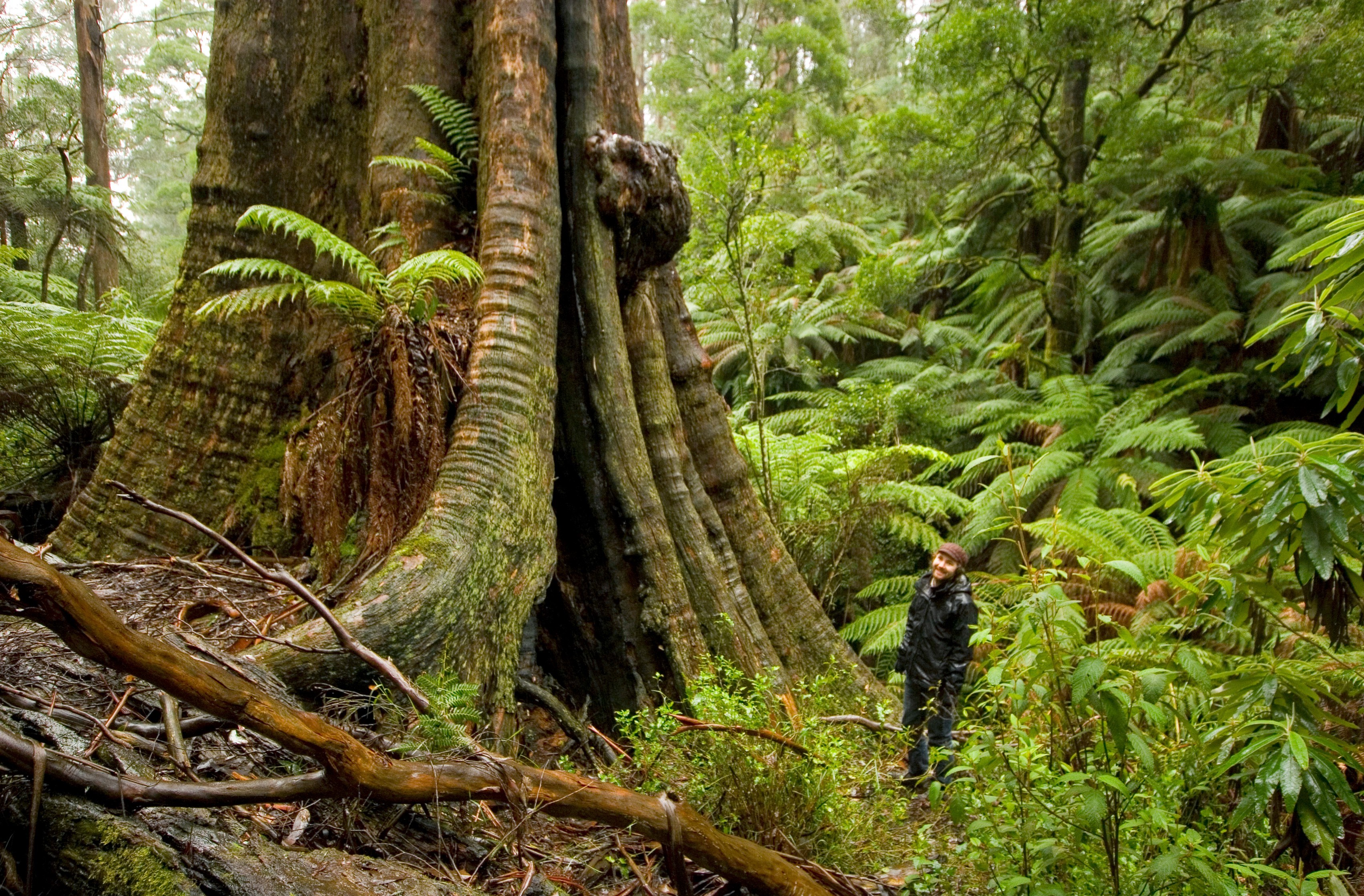Media Releases - 23 May 2023
Fast-tracked end to native forest logging welcomed; hard fought forest protections now in sight

The Victorian government has today announced $200 million in funding for a transition package that will bring native forest logging in the state to an end in 2024—six years sooner than the original end date of 2030.
The end of clearfell logging in native forests for wood pulp is long overdue, says conservation organisation The Wilderness Society. A transition away from native forest logging will safeguard threatened wildlife, secure supplies of clean drinking water, and generate much needed stability for those employed by the industry, as well as others living and working in regional communities.
The announcement follows years of turmoil in the wood pulp and sawn timber industries, caused by a lack of wood supply that has rendered VicForests unable to fulfil contractual obligations to the Nippon/Opal paper mill. These supply issues were severely exacerbated by the 2019-20 Black Summer Bushfires. Successive court rulings have also found VicForests’ logging activities to be illegal, finding the government logging agency to be in breach of laws to protect endangered species, like the wollert / Leadbeater’s Possum and warnda / Greater Glider, and a serious threat to the State’s environment.
The Forest Industry Taskforce, which was comprised of industry, trade union, and conservation representatives and ran from 2015-2017, shone a light on the breathtaking underestimations of wood supply after decades of forest mismanagement and overlogging. The Taskforce was critical in securing initial acknowledgement from the Victorian government that wood supply constraint was a serious problem for the industry.
With an end to native forest logging finally on the horizon, the Victorian government must now focus its efforts on creating the Great Forest National Park and the Emerald Link to mitigate climate change impacts, protect species from extinction, support regional communities, and deliver the protected forest areas Victorians want and deserve. The Government has already committed to establishing an advisory panel to look at expanding the National Park estate. The rights of Traditional Owners, scientific consideration and community views will be integral to securing positive outcomes.
The question still remains over what the Andrews Government will do with the Kennett-era ‘wood pulp agreement’. The agreement has delivered millions of tonnes of wood pulp to a single company over decades, leading to the collapse of the Mountain Ash forests and making Victoria’s forests more fire prone.
Amelia Young, National Campaigns Director for The Wilderness Society, said, "The era of clearfell logging forests for pulp is well overdue. Victoria's native forests must be managed for the benefit of the community, and not for the interests of multinational paper and packaging companies. Today's budget commitment is a welcome step to support bringing forward the end of native forest logging. It's crucial that workers and families—who have been led astray about the longevity of Victoria's native logging industry—are properly supported through inevitable change.
"Living, breathing, intact forests are the best safeguard we have to mitigate climate change. Now, government must support regional communities by creating the Great Forest National Park and Emerald Link. These conservation economy proposals will provide a sanctuary for threatened wildlife, secure supplies of clean drinking water, and provide secure and long-lasting jobs.
“Premier Andrews has led a government that has finally made the right decision on forests: to support workers, and get the industry on a plantation and recycled fibre footing that all Victorians can be proud of. It remains to be seen what his government will do with the Kennett-era relic, the wood pulp agreement, likewise how these globally-significant forests will be protected and managed for conservation, carbon and recreation while recognising the rights and aspirations of Traditional Owners through a process of consent."
The Wilderness Society, in collaboration with local conservation groups, walking alongside Traditional Owners, and working with the sector, has campaigned for protection of special forests across Victoria for decades.
For interviews with Amelia Young, National Campaign Director for The Wilderness Society, please contact Rhiannon Cunningham, Media Adviser, on [email protected] or 0419 992 760.